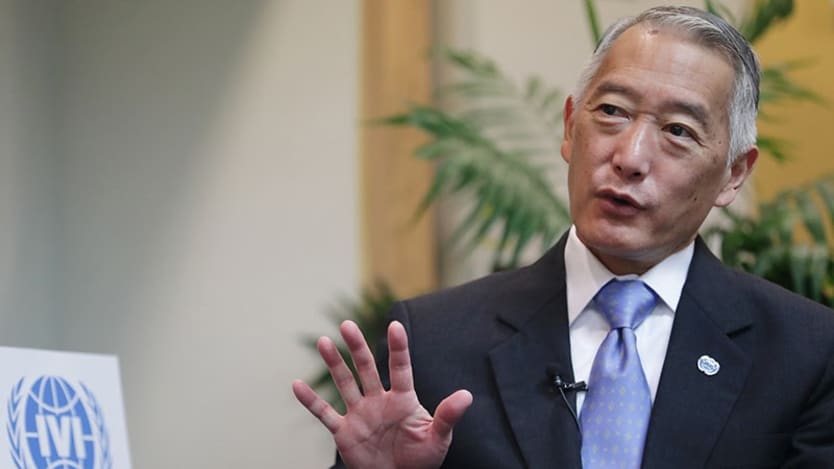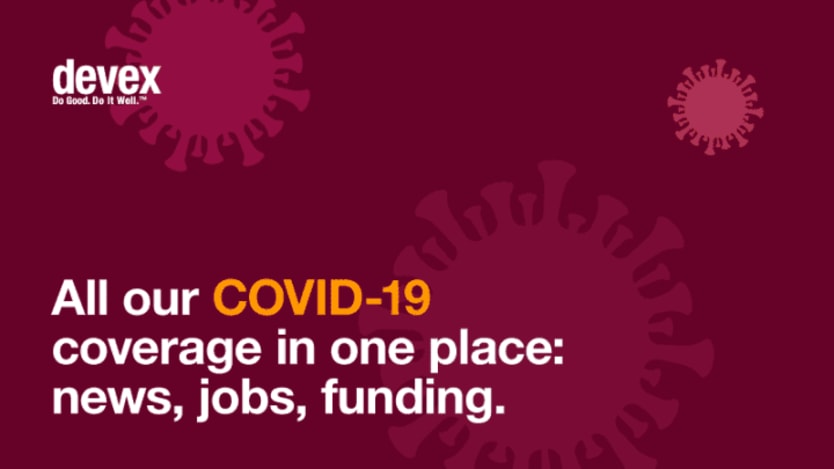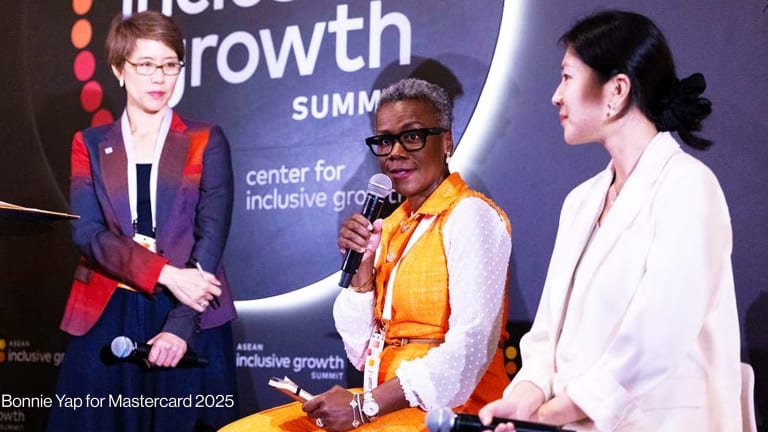Q&A: Why Jerome Kim is 'hopeful' but cautious about distributing a COVID-19 vaccine

NEW YORK — The future prospects of an effective and safe COVID-19 vaccine — or, more likely, multiple vaccines — hung over the United Nations General Assembly’s opening 75th session last week.
Experts like Jerome Kim, director general of the South Korea-based International Vaccine Institute, say that approving a vaccine is only the first of many complicated steps to ensuring that everyone across the world has access to one or more doses — and that they will actually take the vaccine, amid disinformation campaigns.
The COVAX Facility, administered by Gavi, the Vaccine Alliance, Coalition for Epidemic Preparedness Innovations, and World Health Organization, offers a model of vaccine production and delivery that can help avoid vaccine nationalism and competition among countries. But cooperation will be needed beyond the facility, said Kim.
“Hopefully not only will there be COVAX, but there will be a strengthening of the mechanisms to deliver vaccines. We need advocacy around the need for global health, vaccines and infrastructure, because all of these things are a critical part of sustaining help in developing countries,” Kim told Devex. “Clearly this is important in the United States, as well. But in developing countries, the enormous benefit of vaccines is actually even greater.”
“Making the vaccine will be a huge effort. Manufacturing will be another huge effort. ... And making sure that everyone gets it is the final huge effort.”
— Jerome Kim, director general, International Vaccine InstituteIn a recent Skype conversation, Kim talked about what to actually expect once a COVID-19 vaccine hits the market, and what it will take to make it accessible for all.
This conversation has been edited for length and clarity.
It seems as though a situation where you have people in the U.S. and European countries receiving a vaccine a lot faster than people in low- and middle-income countries is possible. Do you think this scenario is inevitable, based on financing and different agreements around vaccine production?
It's really not yet clear how many doses will actually be available the day efficacy is declared. I think most people are saying that by the middle of next year there will be much more widespread availability within the United States. CEPI is hoping to have two billion doses by the end of 2021. Proving that a vaccine works is one thing, making 2 billion doses in addition to the doses that are already assigned to people is another.
The question is, how quickly will it be available to lower income countries? If it is the Moderna vaccine, many countries don't have the capacity to store something at minus 70 degrees. Say five different vaccines are shown to be safe and effective by January. You're going to have the problem that each one has a slightly different requirement for shipping.
The other part is each vaccine is going to maybe be different. So we talk about efficacy in a clinical trial comparing vaccine to placebo. We know there's X percent reduction in infections or disease. That's efficacy. What we don't know is effectiveness. So, how will the vaccine work in the real world? We don't know. Different vaccines may be better at certain things or worse at others. These are the things that will be worked out in studies the day after efficacy is determined.
What could an inequity in vaccine distribution mean, practically? Would it increase the risk of people who are vaccinated getting COVID-19 if many people are not vaccinated, for example?
So, we don't know. When you get vaccinated, it prevents severe disease, but it doesn't prevent infection. So you can turn into one of those asymptomatic carriers. [And, if so,] we don't know how long you'll be infectious. Maybe if you receive a vaccine, you're infectious for only two days rather than six. That would be a good thing. But we don't know these numbers yet.
And each vaccine may be different. They may have different characteristics immunologically or virologically. If you had, say, three or four different vaccines that were being used in the global community, how will we be able to track side effects that are occurring after vaccination?
There may be a geopolitical, realpolitik aspect to this that, ideally, COVAX allows us to avoid because it really commits us to a global solution that is not being driven by vaccine nationalism. This is about getting vaccines that are safe and effective out to populations around the world. It cleanses and sanitizes the isms from development.
I think encouraging the major powers and not just the Chinese or the Americans, but the European Union, to get behind this idea of setting up a global mechanism to ensure that this vaccine gets out to everybody is important. It's going to be beneficial for us in the long run.
It seems like there are many challenges to work through before a vaccine is universally distributed worldwide, potentially years and years from now. Is that how you see it?
Reaching the world's most vulnerable poses biggest challenge for COVID-19 vaccine, experts say
Misinformation and funding shortages are two big roadblocks that public health officials will need to overcome to ensure a COVID-19 vaccine reaches all people, experts said during a high-level UNGA event.
Years and years. If we can get all the agreements in place and people are really working hard on this — I mean, the Korean government officials that we've been talking to are hiring lawyers like that to try and get these things done, because they're committed to it. And I've heard the same thing is happening in other countries around the world. It's just complicated.
And if it succeeds, then there will be 2 billion doses available, which is 20% [of populations in low- and middle-income countries participating in COVAX by the end of 2021]. Companies are reaching out in order to ensure that there is global supply available. Moderna is partnering with Lonza, which is a big European contract manufacturing organization. So it's just difficult to know right now how many doses will actually be available and when, particularly with the pre-purchases that are already in place.
I'm hopeful that COVAX will be in place, that they'll have agreements under their belt.
That will be an example of how this should work and could work and that that will allow them to rapidly increase the number of countries that can be served through that facility.
But has anything like it's been done before? No.
It's kind of like many things during this pandemic — it is unprecedented. Making the vaccine will be a huge effort. Manufacturing will be another huge effort, given that we still have to make billions of doses. And making sure that everyone gets it is the final huge effort.

Search for articles
Most Read
- 1
- 2
- 3
- 4
- 5








